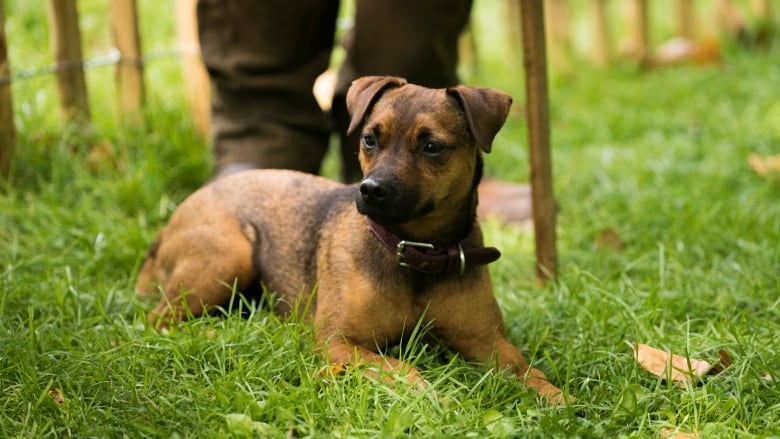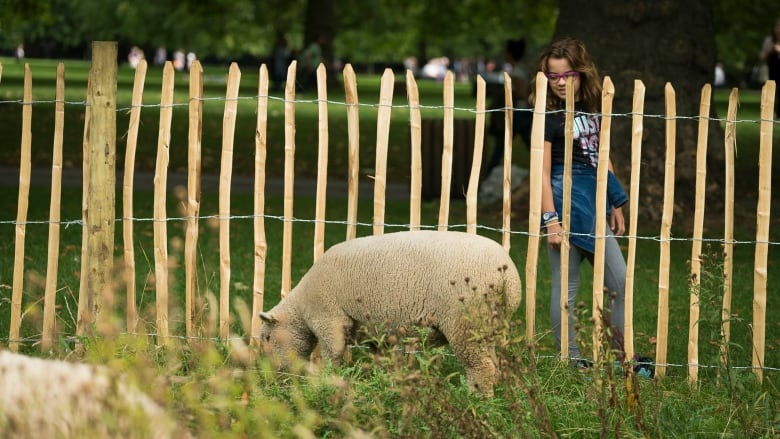'Sheep are fantastic lawnmowers': Flock brought in to graze across from Buckingham Palace
Woolly visitors part of a conservation effort aimed at increasing biodiversity in London's Green Park

There've been some unusual visitors to the royal postal code in London over the past week — a crack team of modern choppers brought in to help trim some troublesome patches of meadow in Green Park, just opposite Buckingham Palace.
Six rare breed sheep have been chauffeured in for a daily shift of munching.
They belong to shepherd Tom Davis, the manager at Mudchute Farm on London's Isle of Dogs. He delivers the sheep to work every morning and takes them home again at night.

"These are London sheep, these are," Davis says. "Born and bred in the East End." Davis said he's proud to be re-introducing agriculture to the city.
His dog Mavis is more pet than sheep-herding dog but a constant companion.

It's part of a conservation trial in the Royal Parks that is supported by Prince Charles. "Mission: Invertebrate" is aimed at increasing the biodiversity in the 40-acre park's wildflower fields, which will in turn encourage more pollinators like bees and butterflies.
Experts say the sheep will eat the more dominant plants and so leave space for weaker plants to grow, leading to a greater variety of vegetation. The sheeps' movement also helps spread and pack down seeds.

"You know, sheep are fantastic lawnmowers," says Davis. "So if you've got a fair number of sheep, it's an amazing thing to do."
It's also been a huge hit with visitors, drawing in sheep enthusiasts, children and ordinary passersby.

The last time sheep were allowed to graze in central London was back in the 1920s and '30s.

"They'd be sold to the highest bidder," said Davis, who carries a shepherd's crook, "and then you'd be able to graze your sheep for a certain amount of time within a certain park."
At end of day, Davis puts leads on his flock and prepares them for the commute home, bellies full and a job well done.